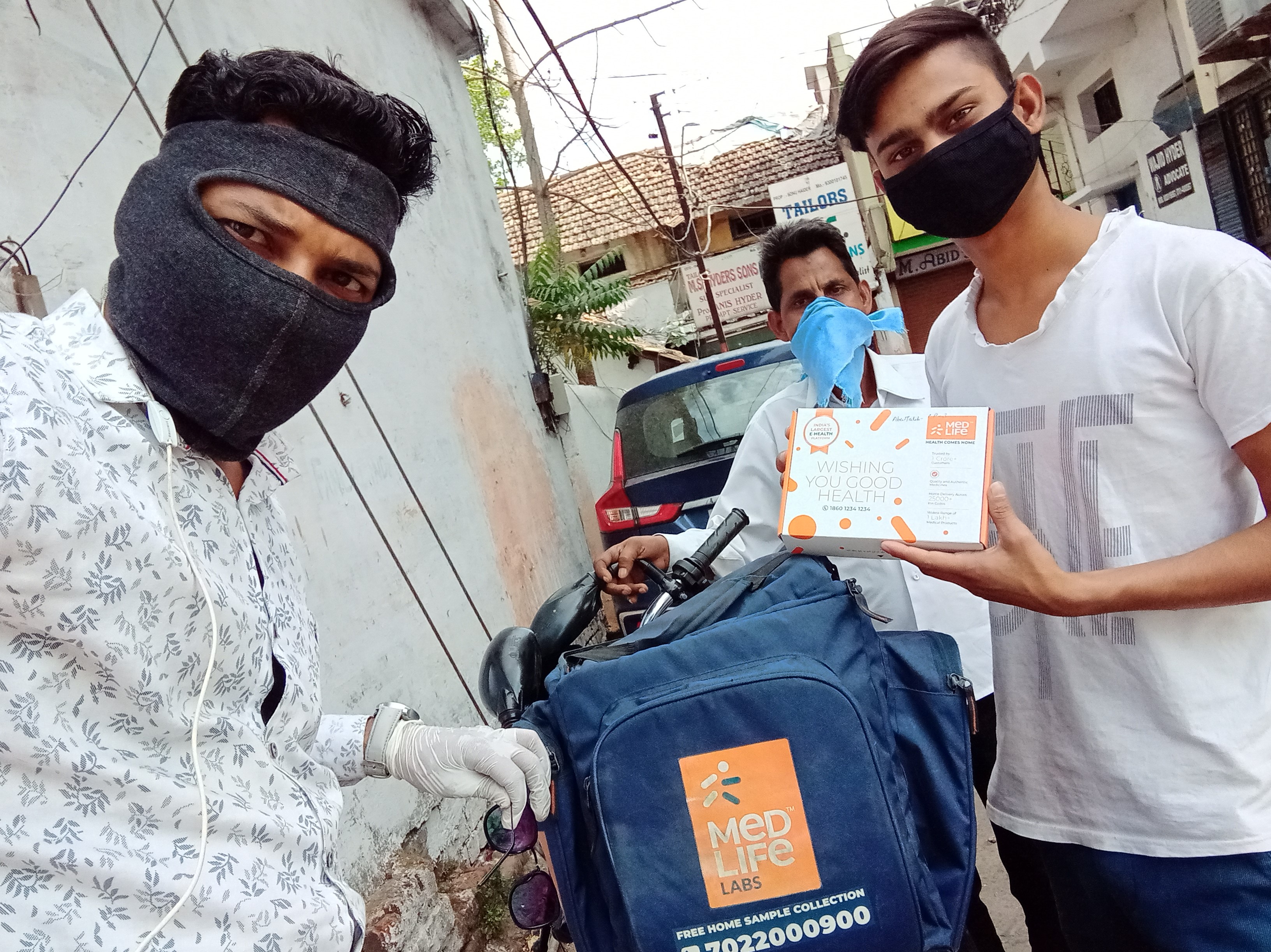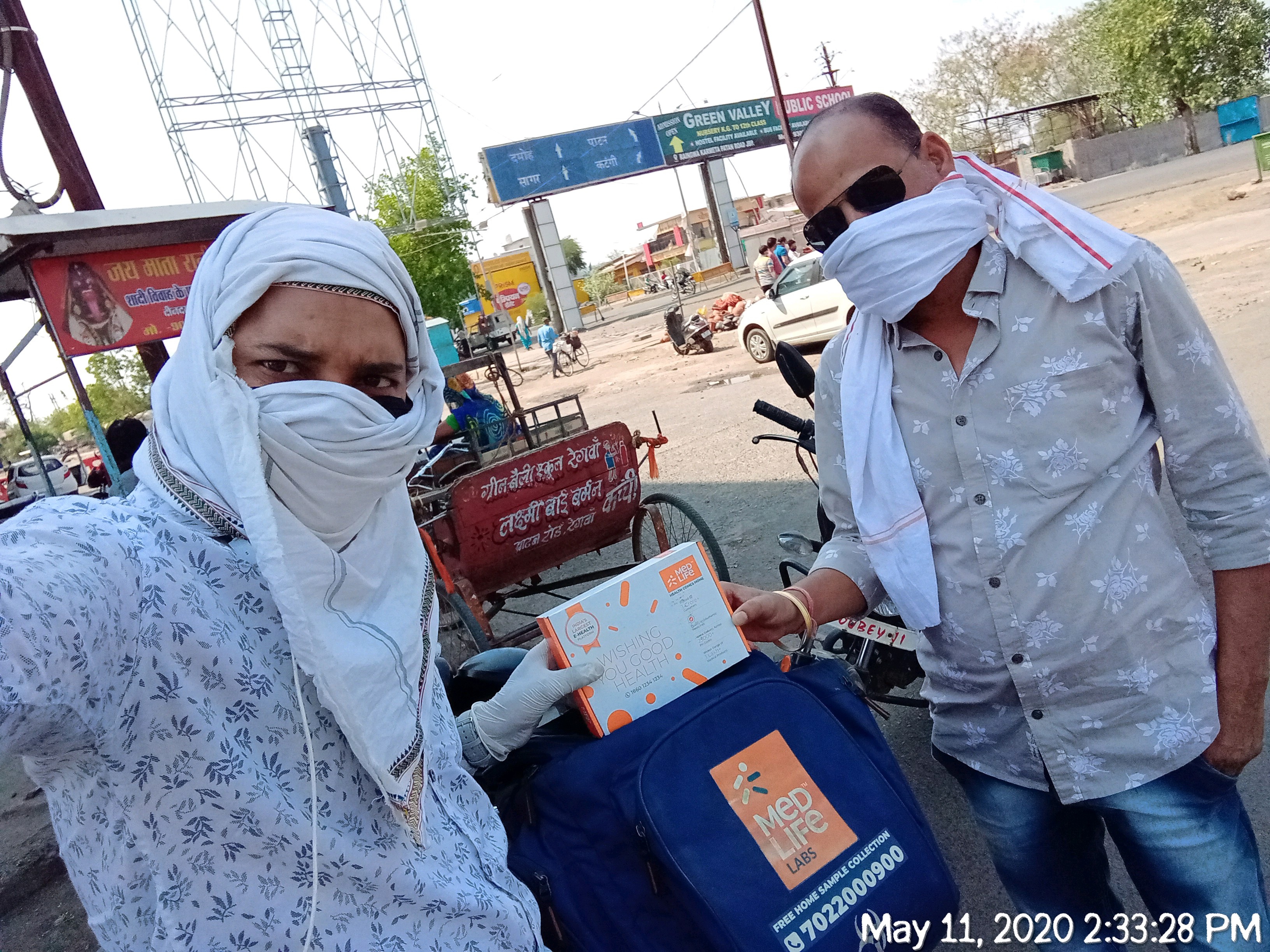Using an e-pharmacy model to deliver TB medication to patients during the COVID-19 pandemic
At the beginning of August 2020, India had over 2.7 million COVID-19 cases. But actions to combat the pandemic have created obstacles for tuberculosis (TB) patients who need to obtain their treatment medication and for patients who need to be tested for TB. The Indian government has declared lockdowns, and private medical providers have closed or functioned only partly during the lockdowns. Limited access to health providers has resulted in fewer TB screenings and diagnoses, and very limited access to treatments and patient counseling.

Photo credit: Naveen Kumar Rai, PSI
The SHOPS Plus project in India, in partnership with MedLife, has been piloting an e-pharmacy model in three cities in Madhya Pradesh to deliver TB testing services and medications to patients’ doorsteps. To ensure uninterrupted distribution, the SHOPS Plus team secured exemptions from the government to allow them to continue delivering drugs to patients’ homes. The SHOPS Plus project also advocated to the Madhya Pradesh government to allow the project to use the e-pharmacy model to support patients from both public and private providers, to ensure that no TB patient is left out. As a result, 866 door-step drug deliveries of TB medication were made and 415 TB patients started receiving fixed-dose combination drugs.
During the pandemic, SHOPS Plus has helped to ensure that patients remain in contact with their providers even when they cannot visit them in person. In coordination with Madhya Pradesh’s TB state officer, the project is facilitating secure online interactions over WhatsApp between patients and providers to ensure patients adhere to their TB medications. The project has also initiated Zoom trainings for health providers to ensure that they are following COVID-19 best practices on safety when providing in-person TB services. To increase the reach of the e-pharmacy model, digital media and WhatsApp is being used to create awareness among new TB patients. District TB officers are also working with the e-pharmacy team to conduct outreach to patients who have dropped out of TB treatment due to COVID-19, so they can be reconnected with TB services and medication.

Photo credit: Naveen Kumar Rai, PSI
The e-pharmacy model was designed to increase use of TB testing and diagnostic services, and TB medication, by bringing them to patients’ doorsteps. The model achieves this by reducing the financial barriers to access, by reducing the costs of travelling to obtain TB services and medication, and by connecting TB patients with other free government services that TB patients are eligible for. As travel restrictions remain in place for the foreseeable future in India, ensuring that potential TB cases are diagnosed and that TB patients get their medication, without breaching lockdown restrictions, is now more important than ever.
Read the original story on the launch of the e-pharmacy model.